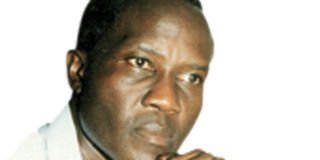Don’t blame only Museveni. We Ugandans are thickheaded

Because we are very slow learners, while President Museveni has learned a lot about killing our strengths over the years, we as a collective mass have not learned to neutralise his advantage.
Any doubter should read his selected quotes in the June 11 Sunday Monitor, page 36.
His early quotes suggest a commitment to the citizens, who various dictatorial regimes had brutalised and dispossessed, and whose sovereignty had to be restored, if necessary by force.
Museveni: “Ugandans would have to be taught how to fight against dictatorship.
Don’t fear anything. Amin used to say that he feared nobody but God, and where is he today?” (Uganda Times, July 9, 1980)
That was five months before the controversial 1980 general election, indicating the broader context in which Museveni and his colleagues subsequently fought the 1981-86 war.
That election was only the most blatant exhibition of the injustice, brutality, dishonesty and arrogance that defined the ruling mindset he fought, which regarded power primarily as ‘might’, overtly expressed as military strength.
Museveni recognised that a strong military could be removed by a stronger or better organised military, which in turn could be overthrown by an even stronger or better organised military.
These destructive cycles could continue until the people, or the masses learned that no military-cum-dictatorship was too strong for them to overthrow.
Museveni’s mission was to teach, and demonstrate on a real battlefield, how dictators could be defeated by an army largely of peasants and children. Never mind that the senior bush war officers – today’s ageing generals – and their top unarmed associates were themselves an elite many of whom would succumb to the vices of their predecessors.
But that is another thing. The point now is that Mr Museveni showed Ugandans how to defy without compromise.
His early quotes suggest he was mindful that with the lessons he had given, the citizens could rebel if his rule strayed from a reasonable path.
Museveni: “I am a freedom fighter. I would feel insulted if you called me a politician. Politicians here in Africa do not have a good reputation. Really, I am not enjoying being President. I want to finish rebuilding the army, the police, and the judiciary and leave the country with a new generation. And then I want to leave office.” (The Weekly Topic, November 15, 1989)
You are smiling. Sixteen years later, on 27 July, 2005, the New Vision quotes Museveni: “Running a country like Uganda is not easy. It is like driving a trailer on a bad road. You cannot give it to people who are learning to drive or those whose driving permits have been cancelled.”
His transformation was now complete. He had become a proper African politician.
To justify his stay in power, he branded Uganda “a trailer on a bad road”. The rulers before him had been discredited. Those trying to come after him were “learners”. A chaotic Uganda was his turf. That was where he thrived.
Because we are thickheaded, we had already forgotten his lessons on resistance. His fear of the citizens was in the dust-bin.
He noticed that we had followed the now corrupt ruling elite and served our greed at the expense of personal dignity and patriotism. He correctly estimated that the conscience of an MP was worth only Shs5 million, and that of a peasant roughly one bar of soap, if he washed at all.
Being thickheaded, we cannot figure out that the ratio of a primary school teacher’s salary to an MP’s (1:60) in 2017 is the same as it was 20 years ago, when Museveni called it ‘criminal’ (The Monitor, June 27, 1997).
In 2017, for the most wretched workers, even a proposed slave-level minimum wage of Sh130,000 ($36) cannot get straight government support.
Knowing us well, Mr Museveni could tell us last week that his long stay in power had given him the experience needed to solve the country’s problems.
And of course he was right. Our slow heads can wait for 40 years, deluded that the resurrected mindset of injustice, brutality, dishonesty and arrogance will finally get serious attention. After which – perhaps – in his own time, he will leave office as he promised in 1989.
Mr Tacca is a novelist, socio-political commentator.




